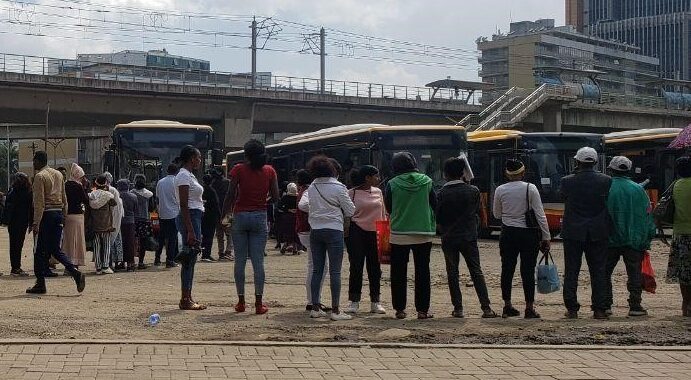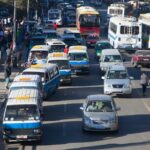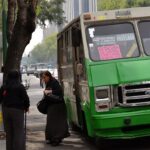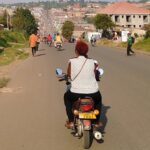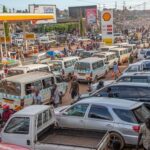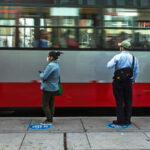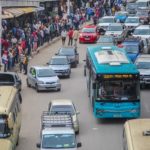Posts tagged with 'informal transport'
Long queues for public transport have become common sights during peak hours all over Addis Ababa, Ethiopia. Under the hot sun or the heavy rain, people anxiously wait for the next public transport to arrive. Frustrated and eager to reach ...

In 2015, the chairman of a Kampala administrative zone about 10 kilometers (6 miles) from the city’s downtown addressed a hand-written note to the chairman of a minibus taxi association. He humbly requested the group of drivers expand its services ...

The Digital Transport for Africa (DT4A) initiative, led by WRI and partners and funded by the French Development Agency (AFD), has selected four winners of the first-ever DT4A Innovation Challenge. From private companies to universities and NGOs, these initiatives are helping to shift ...

In cities around the world, the sudden and sustained drop in public transport ridership during COVID-19 has caused a financial and operational crisis for both large public transport agencies and semiformal service providers. In most places, existing business models and ...

The coronavirus pandemic hit public transport hard. Global ridership tanked initially by as much as 80%, and transit was still at around just 20% of pre-pandemic ridership at the end of 2020. There is serious concern that people will increasingly opt for private vehicles, should public ...

For men, women, and children, movement around and across Ugandan cities is dominated by minibuses, motorcycle taxis and walking. However, gender roles and differences in priorities and values mean women’s and men’s travel needs can differ widely. Recently, interviews conducted ...

Multimodal public transport in Uganda is widespread but largely an informal affair. Kampala, like many African cities, relies on this informal system – comprised largely of taxis (14-seater minibuses) and boda bodas (motorcycle taxis) – to provide much-needed connectivity to ...

Crisis often sparks changes to the ways we move. Post-war prosperity made the automobile a household item, and lifestyle. The 1970s global oil and fiscal crisis brought a short-lived bike boom and a retreat of city dollars for public transit. ...

Plummeting bus and train ridership, lost jobs, overflowing warehouses, more inequality: 2020’s disruptions to the transport sector were widespread and deep. Speaking at Transforming Transportation 2021, co-hosted by WRI and the World Bank, sustainable mobility leaders from around the world ...

This blog is also available in Spanish on IADB.org. For most Latin American and Caribbean cities, public transport is the single most important way to access opportunity and essential services for most urban dwellers, from finding a job to education ...

They marched for human rights, for health care and education, but they came for the metro system, burning and damaging more than 86 stations across the city. Massive protests in Santiago last October forced the government to agree to rewrite ...

Contrary to what many speculated, the number of confirmed COVID-19 cases in Ethiopia has been low so far. As of May 18, 2020, the Ministry of Health confirmed it had a total of 352 cases of COVID-19 of which 30% ...

The COVID-19 crisis has shown that effective public transport is vital to keeping cities running. By serving essential workers in health care, emergency services, food services, and other sectors, public transport has become a service not just for some people ...

Emmanuel leaves his home at 5 a.m. every morning with his two daughters. They take a mini-bus, or “tro-tro,” from their house in Awoshie, a residential neighborhood of Accra, Ghana, to the central business district where Emmanuel works. The trip ...

Beyond the technological revolution underway in transport today, gender was an underlying theme of Transforming Transportation this year. Transport is not gender neutral, not matter where you are, said a chorus of experts during the opening panel on day two. “Gender is often a more robust determinant of modal choice than ...










